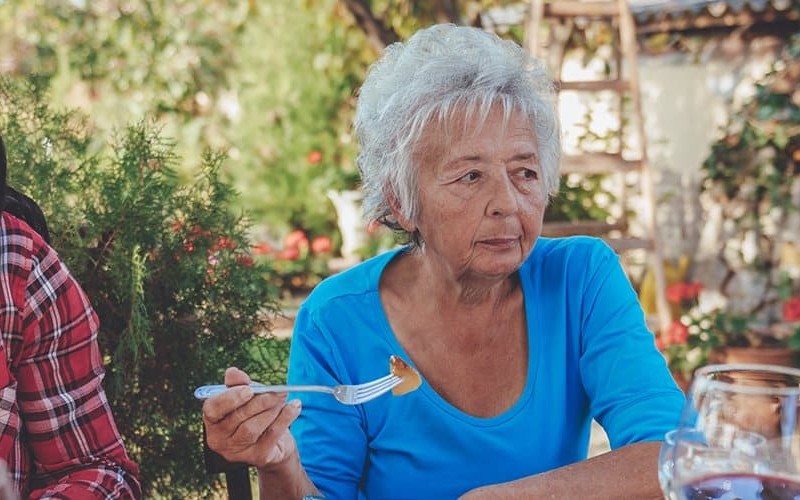Does Emotional Manipulation Lurk within Our Family’s Expression of Love?
Emotional manipulation isn’t just found in romantic relationships; it’s present in our daily lives and often with the people we’re closest to.

It’s a typical Friday night, and you’re sitting down to dinner with your family. The room is filled with laughter and a sense of togetherness. It’s one of those treasured family moments that should leave you feeling uplifted. But somehow, after this seemingly ordinary get-together, you can’t help but feel a bit off. There’s something about the way things unfolded that leaves you feeling guilty and down. Sound familiar?
Emotional manipulation isn’t just a plot device in romance novels; it lurks within the fabric of our daily interactions, often with the ones closest to us.
What is emotional manipulation?
Emotional manipulation refers to the tactics used by individuals to gain control or power over others by exploiting their emotions, vulnerabilities, and insecurities. It involves the use of subtle or overt tactics to influence, guilt-trip, or coerce someone into behaving or thinking in a certain way. Emotional manipulators often employ tactics such as guilt-tripping, gaslighting, withholding affection, playing mind games, or using passive-aggressive behavior to achieve their desired outcome.
We’ve all heard variations of these typical phrases that echo in our ears: it could be your mom, her voice filled with a mixture of love and bitterness, telling you, “Lo hago porque te quiero” (“I do it because I love you”), after scolding you relentlessly for a mistake. Sometimes, she’ll add a dramatic flair by saying, “Ya verás cuando me muera” (“You’ll see when I’m gone”) as if warning you that you’ll regret whatever it is you’re doing when they die – a very manipulative a morbid manipulation tactic that’s used often in Latino families.
A father can be guilty of justifying their controlling decisions with the words, “It’s for your own good,” while diminishing your freedom and independence. And if you do something your family has deemed rebellious enough, they’ll probably remind you, “After everything we’ve done for you, this is how you repay us,” as you recall how they sacrificed their own dreams for the sake of the family. The guilt slowly creeps in.
Abuelas, with all their love and wisdom, might often say something like, “I already had three kids when I was your age. When will you settle down and start a family?” ignoring your unique circumstances and choices, making you feel inadequate for not meeting their dated expectations. Even siblings can get in on the game, guilt-tripping each other with lines like “If you loved me, you’d do it” (“Si me quieres, lo harías”). And so the list goes on, and I bet you have a thousand more examples swirling in your mind by now.
Despite our loved ones claiming they do this with the best of intentions, these seemingly innocent phrases we hear in some Latino households can have a very profound, negative impact on our mental well-being. They become like double-edged swords, cutting deep into our emotions and trying to coerce us into sacrificing our own wants and needs for the sake of family unity. These phrases often come from a place of love, yet they end up reinforcing the idea that love is all about control and discipline. And as we grow older, we carry these twisted beliefs with us, mistakenly thinking that manipulation is a form of love in our adult relationships.
What many end up learning, though, is that you don’t owe anyone the sacrifice of your dreams, values, or emotional well-being. Emotional manipulation, regardless of its cultural context, is wrong. You are not responsible for fulfilling others’ expectations or conforming to outdated cultural norms. Your happiness and authenticity matter.
We must challenge the notion that love should come at the expense of our autonomy and happiness and recognize that healthy relationships are built on mutual respect, trust, and genuine care, not on guilt trips. It’s a tough feat, but breaking free from the cycle of emotional manipulation and setting healthy boundaries within our families can help us redefine what love and family truly mean.
Addressing emotional manipulation within the Latino community is no easy task. It’s like trying to untangle a complicated knot. It requires sensitivity, understanding, and patience. But we can start by having open and honest conversations about emotional manipulation, helping each other recognize the thin line between healthy emotional exchanges and subtle manipulation, especially since many of our older family members may not have been taught to recognize these patterns themselves.
Even though some had tough upbringings, it’s up to each individual to decide where the cycle stops. It’s crucial to pass this awareness on to the next generation so they don’t confuse love, unity, and loyalty with control, guilt, or fear. They can grow up understanding their feelings, needs, and rights rather than being molded by manipulative phrases and norms. Equipped with self-awareness, self-esteem, and emotional intelligence, they will be able to identify manipulation, safeguarding their emotional well-being and paving the way for healthier relationships.
Bottom line is: stop tolerating and justifying emotional manipulation under the guise of love.




